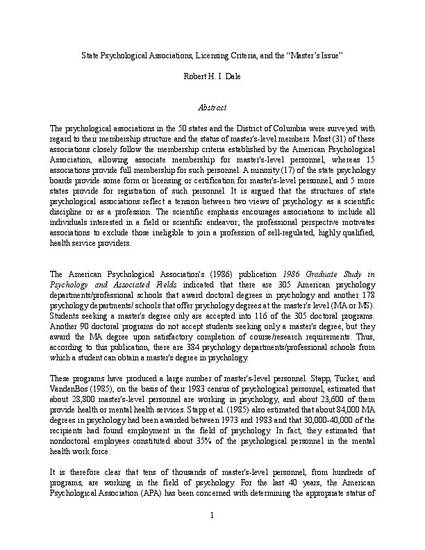
The psychological associations in the 50 states and the District of Columbia were surveyed with regard to their membership structure and the status of master's-level members. Most (31) of these associations closely follow the membership criteria established by the American Psychological Association, allowing associate membership for master's-level personnel, whereas 15 associations provide full membership for such personnel. A minority (17) of the state psychology boards provide some form or licensing or certification for master's-level personnel, and 5 more states provide for registration of such personnel. It is argued that the structures of state psychological associations reflect a tension between two views of psychology: as a scientific discipline or as a profession. The scientific emphasis encourages associations to include all individuals interested in a field or scientific endeavor; the professional perspective motivates associations to exclude those ineligible to join a profession of sell-regulated, highly qualified, health service providers.
Copyright © 1988 American Psychological Association.
This is a post-print version of an article originally published in Professional Psychology: Research and Practice, 1988, Volume 19, Issue 6.
. The version of record is available through: American Psychology Association. "This article may not exactly replicate the final version published in the APA journal. It is not the copy of record."